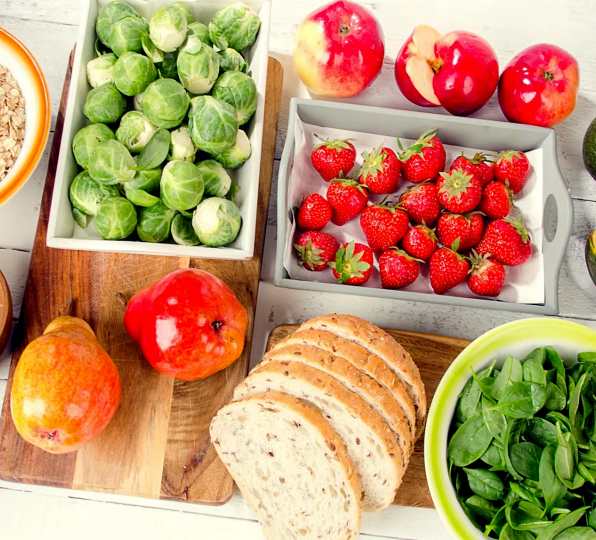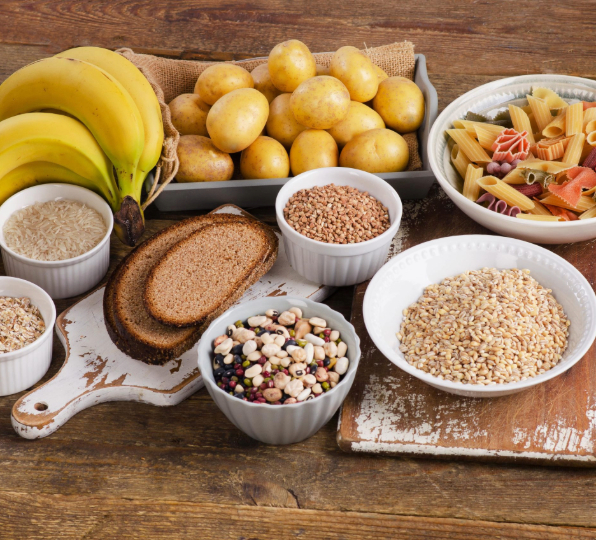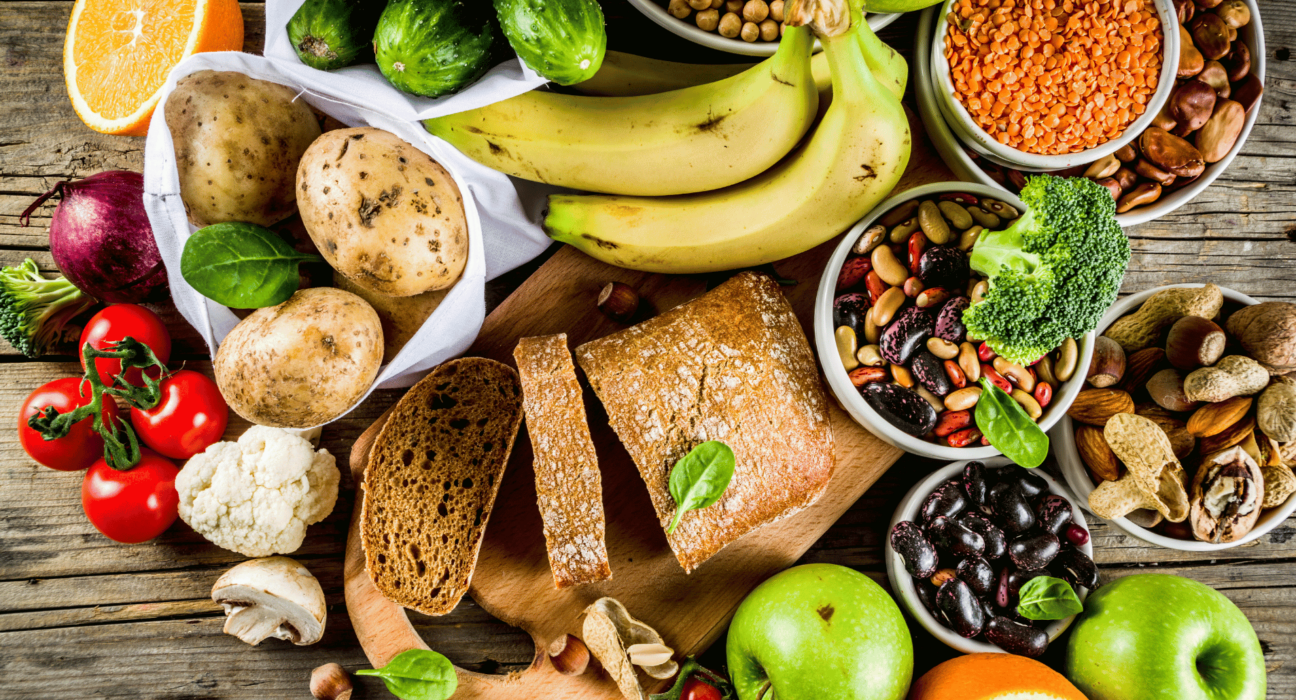Introduction:
Although they have a reputation for being the enemy of weight loss, carbohydrates actually contribute significantly to a diet that is sustainable and well-balanced. Carbs are a valuable ally in your weight loss journey when they are consumed in moderation and from whole food sources, as they provide essential nutrients, energy, and satisfaction. We’ll dispel popular misconceptions and provide you the knowledge you need to make wise dietary decisions as we examine five strong arguments for why carbohydrates are not your enemy when attempting to lose weight in this blog.
1. Sustainable Energy Source
Carbohydrates serve as the body’s primary and preferred source of energy, providing glucose—a simple sugar that fuels various physiological processes essential for daily functioning. From powering muscles during physical activity to sustaining brain function and supporting vital organ function, carbohydrates play a crucial role in maintaining energy levels and promoting overall health.
Complex carbohydrates, found in whole grains, fruits, vegetables, and legumes, offer a sustainable and reliable source of energy due to their gradual digestion and absorption. Unlike simple carbohydrates, which are rapidly metabolized and may cause fluctuations in blood sugar levels, complex carbohydrates provide a steady release of glucose into the bloodstream, ensuring a consistent and prolonged source of energy.
Whole grains such as oats, brown rice, quinoa, and whole wheat contain a wealth of nutrients, including fiber, vitamins, and minerals, in addition to complex carbohydrates. Fiber, in particular, helps slow down the digestion and absorption of carbohydrates, promoting satiety, stabilizing blood sugar levels, and supporting digestive health. By incorporating whole grains into your diet, you can enjoy sustained energy levels throughout the day while reaping the nutritional benefits of these wholesome foods.
Similarly, fruits and vegetables offer a rich source of complex carbohydrates, along with vitamins, minerals, antioxidants, and phytonutrients essential for overall health and well-being. From bananas and apples to leafy greens and sweet potatoes, the diverse array of fruits and vegetables provides a variety of flavors and textures to satisfy your palate while supplying a steady stream of energy to fuel your activities.
Legumes, including beans, lentils, and chickpeas, are another excellent source of complex carbohydrates, protein, and fiber. Incorporating legumes into your meals adds bulk and texture while providing sustained energy and promoting feelings of fullness and satisfaction.
2. Fiber-Rich Options Aid in Satiety
Fiber-rich carbohydrates, including whole grains, fruits, vegetables, and legumes, play a crucial role in promoting satiety and supporting overall health and well-being. Unlike simple carbohydrates, which are quickly digested and may leave you feeling hungry shortly after eating, fiber-rich options provide a sense of fullness and satisfaction that helps curb cravings and prevent overeating.
Dietary fiber, a type of indigestible carbohydrate found in plant-based foods, adds bulk to the diet and slows down the digestion and absorption of nutrients. This results in a prolonged feeling of fullness and satiety, making fiber-rich foods an excellent choice for those looking to manage their weight and improve their dietary habits.
Whole grains, such as oats, brown rice, quinoa, and whole wheat, are valuable sources of dietary fiber, along with essential nutrients like vitamins, minerals, and antioxidants. Choosing whole grain options over refined grains ensures a higher fiber content and provides sustained energy while promoting feelings of satisfaction and reducing the risk of overeating.
Similarly, fruits and vegetables are naturally rich in fiber and water, making them low in calories but high in volume and nutrient density. Incorporating a variety of colorful fruits and vegetables into your meals and snacks not only adds flavor and texture but also helps fill you up without excess calories. Including fiber-rich options like berries, apples, leafy greens, and cruciferous vegetables in your diet can help control hunger and cravings while supporting overall health and vitality.
Legumes, including beans, lentils, and chickpeas, are also excellent sources of dietary fiber, protein, and complex carbohydrates. Adding legumes to soups, salads, stir-fries, and casseroles not only enhances the nutritional quality of your meals but also promotes feelings of fullness and satisfaction, reducing the likelihood of overeating and snacking on less nutritious options.
3. Supports Muscle Preservation
Preserving lean muscle mass is crucial when aiming to lose weight, as it helps maintain metabolic rate, supports overall health, and enhances physical performance. Carbohydrates play a vital role in this process by supporting muscle glycogen stores, which are essential for fueling workouts and preventing muscle breakdown.
During exercise, the body relies on glycogen—a stored form of glucose—for energy, especially during high-intensity activities such as weightlifting, sprinting, or interval training. Carbohydrates are the primary dietary source of glucose, providing the fuel needed to power muscles during physical exertion. By consuming an adequate amount of carbohydrates, you ensure that your body has the energy it needs to perform exercise effectively and sustain intensity throughout the workout.
In addition to providing energy during exercise, carbohydrates also play a crucial role in preserving muscle mass by preventing muscle breakdown. When glycogen stores become depleted, the body may turn to alternative fuel sources, including amino acids derived from muscle tissue. By replenishing glycogen stores through carbohydrate consumption, you can help spare muscle tissue from being broken down for energy, thus preserving lean muscle mass.
Furthermore, carbohydrates support muscle growth and maintenance by facilitating protein synthesis—a process essential for repairing and building muscle fibers damaged during exercise. Consuming carbohydrates alongside protein after workouts can enhance the muscle-building response, promoting recovery and adaptation to training stimuli.
It’s important to note that the type and timing of carbohydrate consumption can influence its impact on muscle preservation and overall health. Choosing nutrient-dense carbohydrate sources such as whole grains, fruits, vegetables, and legumes provides not only energy but also essential vitamins, minerals, and fiber necessary for optimal health and performance.
Additionally, timing carbohydrate intake around workouts—consuming carbohydrates before, during, and/or after exercise—can maximize glycogen replenishment and support muscle recovery and growth. By including carbohydrates in your diet and strategically timing their consumption, you can ensure that your body has the energy it needs to perform exercise effectively, support muscle preservation, and achieve your weight loss goals while maintaining overall health and vitality.
4. Enhances Nutrient Intake
Carbohydrate-rich foods, such as fruits, vegetables, whole grains, and legumes, are not only valuable sources of energy but also pack a nutritional punch, providing essential vitamins, minerals, and antioxidants necessary for overall health and well-being. Including a variety of these nutrient-dense carbohydrates in your diet can enhance your nutrient intake and support your body’s needs during weight loss.
Fruits and vegetables are rich in vitamins, minerals, and phytonutrients that play key roles in supporting various physiological functions, including immune function, digestion, and cellular health. They are particularly abundant in vitamins A, C, and K, as well as folate, potassium, and fiber. These nutrients contribute to overall health by promoting immune resilience, aiding in wound healing, supporting bone health, and regulating blood pressure.
Whole grains, such as oats, brown rice, quinoa, and whole wheat, are another excellent source of essential nutrients, including B vitamins, magnesium, and selenium. B vitamins play a crucial role in energy metabolism, nerve function, and red blood cell production, while magnesium supports muscle and nerve function, regulates blood sugar levels, and promotes bone health. Selenium acts as an antioxidant, protecting cells from damage and supporting thyroid function.
Legumes, including beans, lentils, and chickpeas, are nutrient powerhouses packed with protein, fiber, vitamins, and minerals. They provide an array of nutrients, including iron, zinc, and folate, which are essential for energy production, immune function, and DNA synthesis. Additionally, legumes contain phytonutrients such as flavonoids and lignans, which have antioxidant and anti-inflammatory properties.
5. Sustainable and Enjoyable Eating
Adopting a sustainable and enjoyable eating approach is essential for long-term success in weight loss and overall health. Restrictive diets that eliminate entire food groups, such as carbohydrates, can be challenging to maintain over time and may lead to feelings of deprivation and frustration. Including carbohydrates in your diet offers greater flexibility and enjoyment in eating, making it easier to adhere to your weight loss goals while promoting overall well-being.
Carbohydrates are a diverse group of nutrients found in a wide variety of foods, including fruits, vegetables, whole grains, and legumes. By incorporating a range of carbohydrate-rich options into your meals and snacks, you can create a balanced and satisfying eating plan that nourishes your body and satisfies your taste buds.
Including carbohydrates in your diet provides a source of energy to fuel your daily activities and exercise routine. Carbohydrates are the body’s preferred fuel source, particularly during high-intensity physical activities such as weightlifting, running, or cycling. By consuming carbohydrates before, during, and after workouts, you can optimize performance, support recovery, and enhance overall exercise capacity.
Moreover, carbohydrates contribute to the enjoyment of meals by adding flavor, texture, and variety to your plate. Fruits and vegetables offer a spectrum of vibrant colors, flavors, and nutrients, while whole grains and legumes provide hearty and satisfying options for meals and snacks. Including a diverse array of carbohydrate-rich foods ensures that you never feel bored or restricted in your eating choices, making it easier to stick to your weight loss goals in the long run.
Additionally, incorporating carbohydrates into your diet can help promote psychological well-being by preventing feelings of deprivation and promoting a positive relationship with food. Allowing yourself to enjoy a wide range of foods, including carbohydrates, fosters a balanced and sustainable approach to eating that supports both physical and emotional health.


Conclusion:
Carbohydrates are not the enemy when it comes to weight loss; in fact, they are essential for fueling your body, supporting muscle preservation, promoting satiety, enhancing nutrient intake, and creating a sustainable eating plan. Instead of demonizing carbs, focus on choosing high-quality, nutrient-dense carbohydrate sources such as fruits, vegetables, whole grains, and legumes to support your weight loss goals and overall health. By embracing carbohydrates as part of a balanced diet, you can achieve long-term success and enjoy a fulfilling and nourishing relationship with food.












